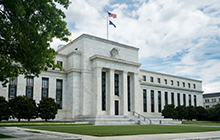 On December 12, 2022, the Consumer Financial Protection Bureau (“CFPB”) proposed a rule (“Proposed Rule”) that would require non-bank financial institutions to register with the CFPB when they become subject to certain final public orders by a Federal, State, or local government agency in connection with the offering or provision of a consumer financial product or service. Under the Proposed Rule, the CFPB would publish the orders and company information via an online registry, and require the registered companies to periodically update it. Additionally, larger companies (defined as covered persons with $1 million or more in annual receipts resulting from offering or providing consumer financial products or services) would be required to designate “a senior executive officer with knowledge of, and control over, the entity’s efforts to comply with each relevant order,” who would describe all such efforts taken in a written submission to the CFPB, and “attest” whether the company has violated the orders during the preceding calendar year. Proposed Rule at 24, 40. According to the CFPB, these requirements are warranted because “[i]nformation regarding a company’s compliance with outstanding orders is probative of . . . whether the company treats potential sanctions for repeat violations of relevant consumer protection laws as a mere cost of doing business.”
On December 12, 2022, the Consumer Financial Protection Bureau (“CFPB”) proposed a rule (“Proposed Rule”) that would require non-bank financial institutions to register with the CFPB when they become subject to certain final public orders by a Federal, State, or local government agency in connection with the offering or provision of a consumer financial product or service. Under the Proposed Rule, the CFPB would publish the orders and company information via an online registry, and require the registered companies to periodically update it. Additionally, larger companies (defined as covered persons with $1 million or more in annual receipts resulting from offering or providing consumer financial products or services) would be required to designate “a senior executive officer with knowledge of, and control over, the entity’s efforts to comply with each relevant order,” who would describe all such efforts taken in a written submission to the CFPB, and “attest” whether the company has violated the orders during the preceding calendar year. Proposed Rule at 24, 40. According to the CFPB, these requirements are warranted because “[i]nformation regarding a company’s compliance with outstanding orders is probative of . . . whether the company treats potential sanctions for repeat violations of relevant consumer protection laws as a mere cost of doing business.”
The CFPB described several primary motivations for the Proposed Rule:
- “[M]aking a registry of these orders publicly available would, among other things, allow other regulators at the Federal, State, and local level tasked with protecting consumers to realize the same market monitoring benefits that the Bureau anticipates obtaining from this rule.” Proposed Rule at 24.
- “Publication would [] facilitate the ability of consumers to identify the covered persons that are registered with the Bureau,” and “enhance the ability of consumer advocacy organizations, researchers, firms conducting due diligence, and the media to locate, review, and monitor orders enforcing the law.”
- It “will assist [the CFPB’s] supervisory work by collecting additional information in the form of a written statement from certain entities that are subject to the Bureau’s supervision and examination authority.”
- “[R]equiring certain supervised entities to designate a senior executive officer . . . to submit the information required to be contained in the proposed written statement, would facilitate Bureau supervision efforts by providing important information about the entity, helping to prioritize the Bureau’s supervisory activities, and otherwise assisting the Bureau’s supervisory work. These requirements would also . . . incentiviz[e] entities who might otherwise not take seriously their obligations to instead endeavor to comply with consumer protection laws and by highlighting the designated senior executive’s personal responsibility for such compliance.” at 24-25.
This Proposed Rule is the latest of a series of CFPB actions designed to increase its supervisory focus on “repeat offenders,” including those who violate agency or court orders. Proposed Rule at 28.
